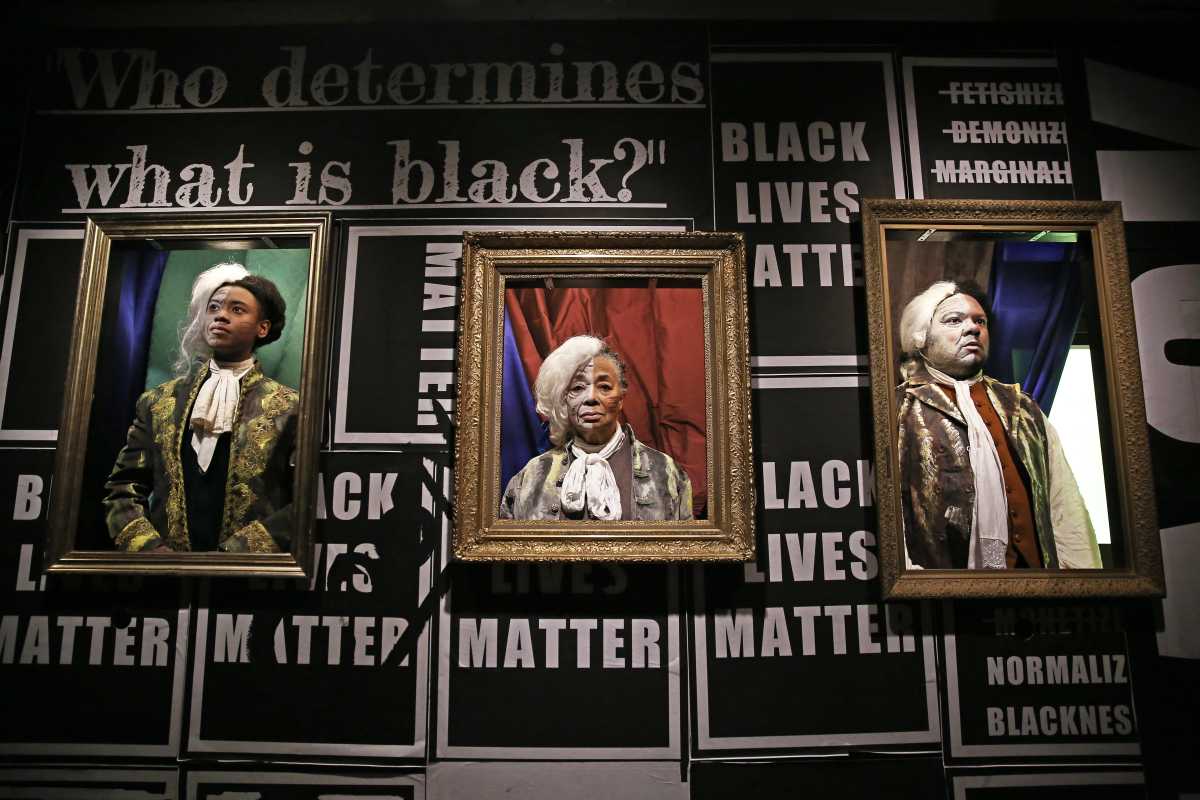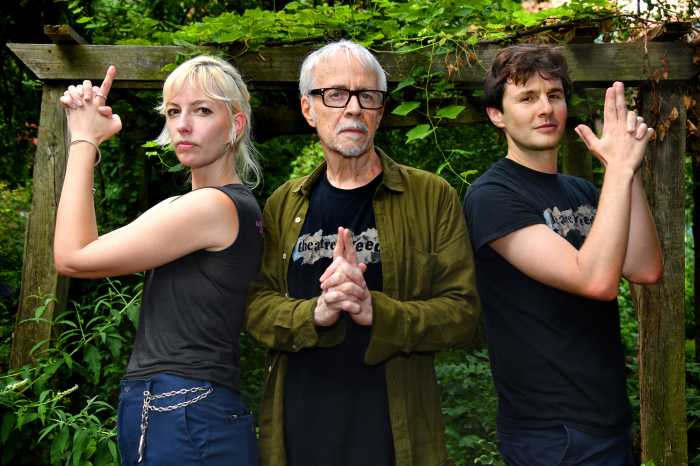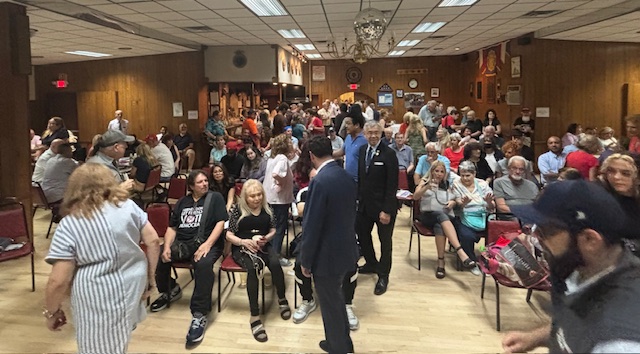The increasingly popular genre of immersive theater takes on a decidedly political and furious edge in “The Black History Museum…According to the United States of America,” an elaborate mixed-media project that turns HERE Arts Center into a multi-space “theatrical museum” containing visual art installations, satirical skits, dance sequences and even a game show.
Conceived and directed by Zoey Martinson, whose impressive resume includes directing credits in Ghana and South Africa, it is timed to mark the 400th anniversary of the introduction of black slavery in the U.S. and intended to examine black history and the construction of black identity up to the present day.
At the performance I attended, which lasted roughly two hours, I was handed an “Honorary Black Card.” According to the jovial tour guide, Robert King, who materialized in the lobby, each member of the audience, regardless of their actual race, was being made “black for tonight.” He also warned the card would expire at the show’s end.
This was followed by a scene with the Founding Fathers, who debate how to write the Declaration of Independence in such an ambiguous way that freedom will not be guaranteed for everyone, and a dance conveying the agony of the Middle Passage.
The audience then toured museum-style exhibits exploring love letters from slaves, under-appreciated historic women, braided hair and a dizzying collection of Obama memorabilia. One could also peek into a life-size box containing a minstrel performer and listen in on an HR diversity training session.
During the “Reconstruction Game,” the crowd is divided into teams and asked what major life choices they would make during the period following the Civil War, with the ultimate goal of achieving the American Dream.
A “descendent,” Kareem M. Lucas, who feels the weight of history frequently chimes in with poetic monologues full of critical commentary. At one point, he suggests that “Black history according to the United States of America, is a McDonalds campaign, featuring Venus and Serena smiling, winning for the culture, while being exploited by the market.”
It concludes with a look at the impact of the criminal justice system on black communities in recent decades, including a dialogue among contemporary presidents.
The production team may want to consider tightening the show and more directly connecting the scene work with the art installations. Some portions also become so didactic and aggressive in tone that it begins to feel like a work of propaganda. Nevertheless, “The Black Museum” makes for a freewheeling, intelligent and provocative piece of theater – and a worthy companion of such other current dramas examining the black experience as “Slave Play,” “For Colored Girls…” and “Fires in the Mirror.”
3 stars
HERE, 145 6th Ave., here.org. Through Nov. 24.































